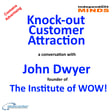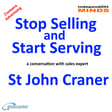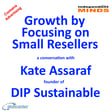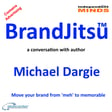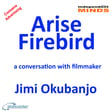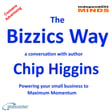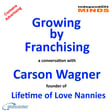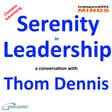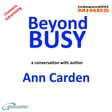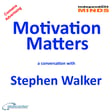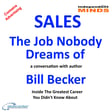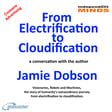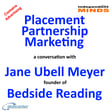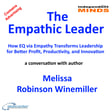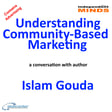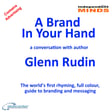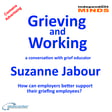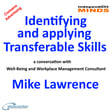
Ever On Customer Service - a conversation with Jamie Marshall
Jamie Marshall is a co-founder of Everonan always-on Leeds based on IT services provider.
In this episode of the Abeceder podcast The Independent Minds, Jamie explains to host Michael Millward how working out what the IT services industry was failing to deliver to customers enabled him and his co-founders to reinvent Everon as a customer service first IT services provider.
Jamie explains what being a customer service first provider means.
He describes the changes that Everon needed to make to become a customer service first provider, including
· changing person specifications they use in recruitment,
· the way in which employees are trained,
· the processes used to deliver services to customers
Jamie is also open about the financial implications of being customer service first and the characteristics of the ideal clients he now hopes to work with.
More information about Jamie Marshall and Michael Millward is available at abeceder.
Audience Offers
The Independent Minds is made on Zencastr, because as the all-in-one podcasting platform, Zencastr really does make creating content so easy.
If you would like to try podcasting using Zencastr visit zencastr.com/pricing and use our offer code ABECEDER.
Travel
With discounted membership of the Ultimate Travel Club, you can travel anywhere else at trade prices on flights, hotels, trains, and many more travel related purchases.
Fit For Work Look after your health and you will be fit for work.
No point in being in a great job if you are in poor health. That is why we recommend The Annual Health Test from York Test; a 39-health marker Annual Health Test conducted by an experienced phlebotomist with hospital standard tests carried out in a UKAS-accredited and CQC-compliant laboratory.
A secure Personal Wellness Hub provides easy-to-understand results and lifestyle guidance
Visit York Test and use this discount code MIND25.
Visit Three for information about business and personal telecom solutions from Three, and the special offers available when you quote my referral code WPFNUQHU.
Being a Guest
We recommend the podcasting guest training programmes available from Work Place Learning Centre.
We use Matchmaker.fm to connect with potential guests If you are a podcaster looking for interesting guests or if you have something interesting to say Matchmaker.fm is where great guests and great hosts are matched and great podcasts are hatched. Use our offer code MILW10 for a discount on membership.
We appreciate every like, download, and subscriber.
Thank you for listening.
